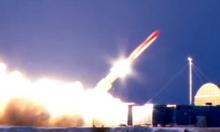Thirst for Oil, OPEC and Russia's Fate - 10 April, 2003
After the 9/11 terrorist attacks, many people understood that the world would never be the same as it had been before. Now that American tanks are driving about Baghdad with impunity are shooting up hotels with journalists in them, it is beyond doubt that the world has radically changed once and for all. And, since the world has changed, it means that its residents will have to change as well, no matter how disagreeable this necessity may be.
Experts have predicted several times already that, as soon as the United States captures Iraq's oil, the world oil market in its present-day condition will cease to exist. It is a widespread opinion that, after the Gulf War II, the Organization of Petroleum Exporting Countries (OPEC) may collapse. Recently, this outcome was predicted by Russian First Deputy Prime Minister Viktor Khristenko.
Yesterday, this pessimistic scenario was also voiced by an anonymous high-ranking official from the oil cartel's administration in Vienna, where OPEC headquarters is located. In the words of the official, if "privatization" of the Iraqi oil industry is undertaken by American companies after the war, then an OPEC break up will be inevitable.
This statement should not come as a surprise. The United States is the world's largest oil consumer. As soon as it becomes independent of the world oil market (and the United States will practically obtain this after it gains control over Iraqi oil), the market will collapse into isolated and helpless exporters and importers of hydrocarbons.
The anonymous official from OPEC reminded the whole of the world that Iraq, which is being crushed by the U.S./U.K. forces today, is not only the world's largest reservoir of black gold: Iraq was also one of the initiators of the creation of OPEC, and the oil cartel was set up by a conference in Baghdad in September 1960. However, the tragic symbolism of the present-day situation is not at all a final verdict on this international organization.
OPEC Secretary General Alvaro Silva Calderon met journalists yesterday and neither confirmed nor denied the possibility of OPEC breaking up. He said that the organization has already survived several similar critical situations.
Experts predicted even during Desert Storm and during the eight-year Iran-Iraq war that OPEC might collapse. However, all the rumors about the demise of the oil behemoth were exaggerated. Calderon says that the situation may be similar today. The fact of the matter is that a breakdown of the cartel will neither decide nor help anything. There will still be oil exporters and importers, and the same problems will remain. All of them will need a stable and predictable oil and oil-products market. Otherwise, it would be impossible for any country in the world to plan its economic development.
Consequently, other international organizations — alliances of oil importers and exporters — will arise instead of OPEC. This is the only way toward coordination of mutual interests, regardless of whether the United States buys oil on the international market or not.
At present, Russia is also thinking about changes in world oil flows; and not because of the Iraq war, but rather because of the failure to realize large-scale oil supplies to the United States in exchange for investments in Russian mining industries. Russia's mass media tell us that the government considers Asian countries such as China, Japan, etc., as its highly probable clients and investors. Certainly, EU countries will be interested in additional supplies of Russian oil if they have to give up Iraqi oil.
Therefore, it is too early to give up the Russian oil and gas industry for lost as a result of the reorganization of the oil market being done by the United States, as well as it's too early to say OPEC will vanish forever. Somehow or other, new alliances will appear. The barbaric actions of the U.S./U.K. occupation troops along the Tigris and Euphrates are just catalyzing the process.
The press service of the Russian Energy Minister reported yesterday that Iran has already suggested expanding cooperation in the energy sphere. Negotiations on the subject were held yesterday between Energy Minister Igor Yusufov and Mohammad Foruzande, the chairman of Iran's largest economic structure, the Mostazafan Iran Foundation. According to RIA Novosti, the parties involved discussed the participation of Russian companies and enterprises in industrial projects on the territory of Iran.
At present, Russian companies are already operating in Iran. The Russian concern Siloviye Mashiny is helping to finish construction of a nuclear-power plant started by the Germans in the Iranian city of Bushher. Equipment supplied to the country in the Soviet era is being modernized. However, the Iranian leadership seems to be dissatisfied with the level of cooperation the countries have reached.
According to the Russian Energy Ministry's press service, Foruzande has suggested to the Russian government the possibility of considering Russia's participation in the construction and modernization of thermoelectric power stations and the construction of new electric power stations using combined gas cycles. It may also be conjectured that Russian companies may participate in drilling operations in oil and gas fields, including Iran's largest gas field, South Pars. Iran would also like to organize delivery of Russian oil to the northern regions of the country.
According to an official report, a special working group will start considering these issues in the near future. There is little reason to doubt that Russia will be grateful to be able to start modernization and construction of oil and gas installations in Iran, in the same way as it willingly joined tempting projects in Saddam Hussein's Iraq. Neither Iran nor Russia have a way out.
The United States has an alternative in this situation; it is not coincidental that the United States has named as its next targets Syria, which protested strongly against the war in Iraq, and Shiite Iran, which expelled Shah Reza Pahlavi, who was loyal to U.S. oil companies, during the 1979 Islamic Revolution.
Dmitry Slobodyanyuk
PRAVDA.Ru
Subscribe to Pravda.Ru Telegram channel, Facebook, RSS!




